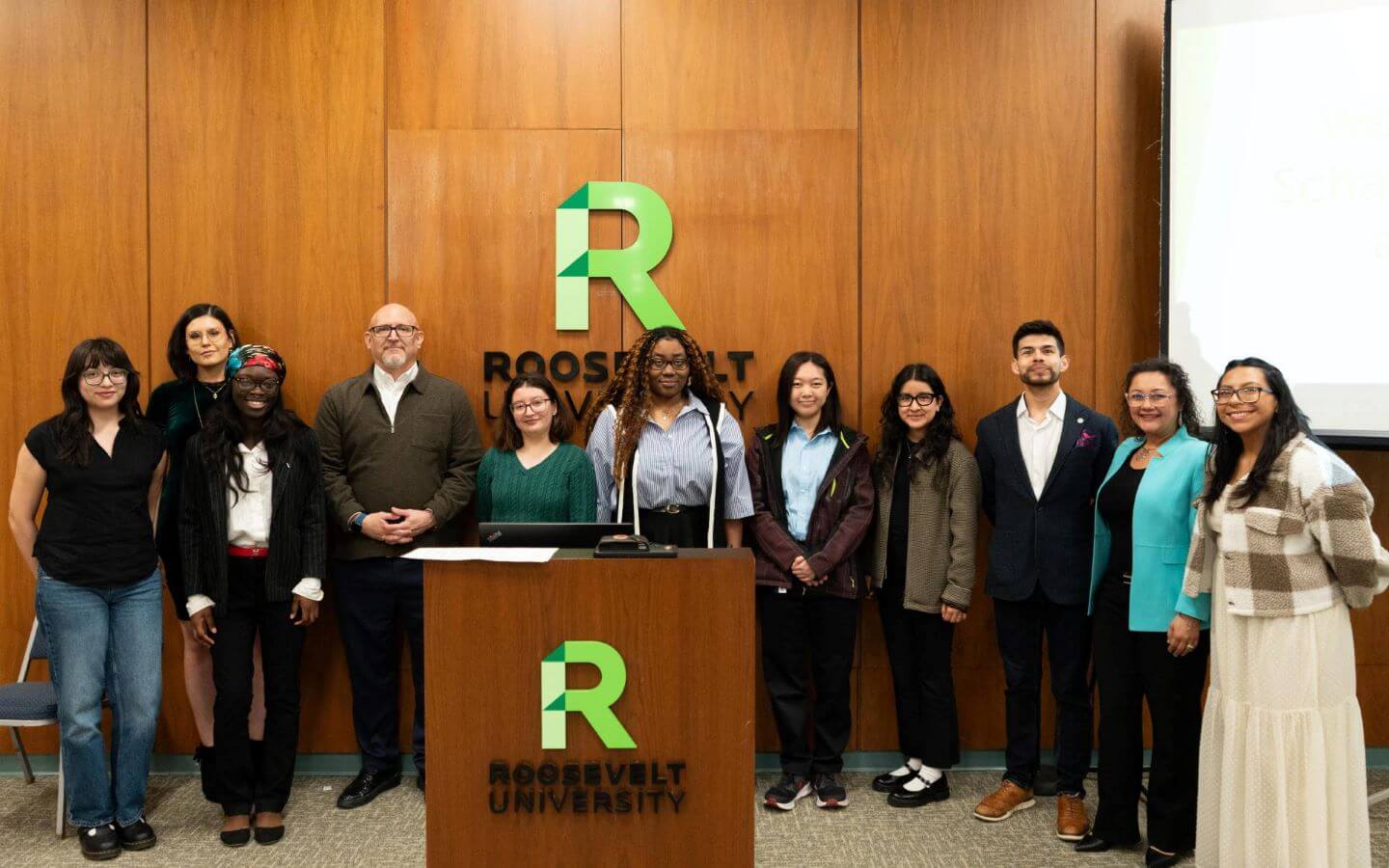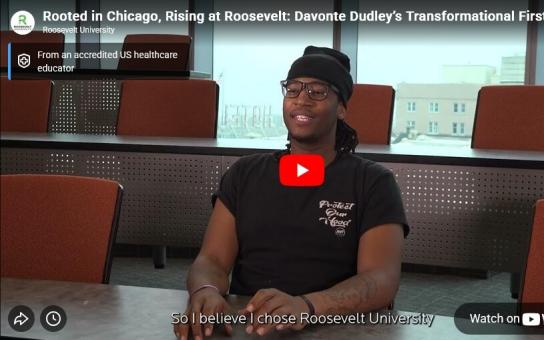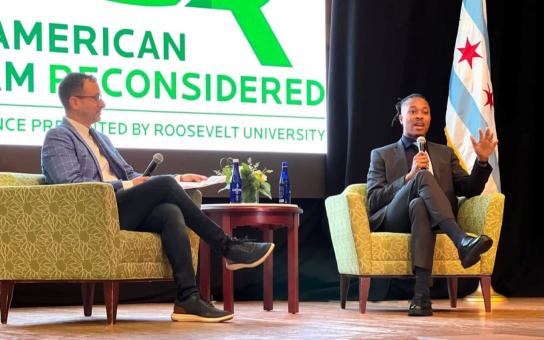
Roosevelt University proudly hosted the 2025 Student Research & Inquiry Symposium from April 4–11, spotlighting student innovation across disciplines through oral presentations, poster sessions, performances and panel discussions on both the Chicago and Schaumburg campuses. Organized by the Office of Student Research and Academic Outreach, the weeklong symposium highlighted Roosevelt’s commitment to experiential learning, social justice and academic excellence.
Students from every college engaged with faculty and peers to share their original work, from pharmaceutical breakthroughs to artistic performances and social justice research. Each day brought together diverse disciplines and demonstrated the university’s unique approach to inquiry-based learning.
On Friday, April 4, the Schaumburg Campus hosted the symposium’s kickoff, featuring Pharmacy students and McNair Scholars presenting on cutting-edge biomedical topics. Presentations included “Potential Modulation of Mitochondrial Function by Monomeric C-Reactive Protein in Ovarian Cancer” and “Therapeutic Potential of Psychedelic Compounds for Substance Use Disorders.” The day concluded with a panel on careers in health and sciences and recognition for outstanding poster presentations.
In Chicago, the week continued with English composition showcases and a brass ensemble and jazz performances by students from the Chicago College of Performing Arts. Presentations like “The Color of American Heroism: Exploring Marvel’s Struggle for Inclusive Representation” and “Too Young to Live Not Too Young to Survive” reflected students' literary and cultural analysis skills.
April 8 featured the Mansfield Institute’s keynote panel “The Stories We Tell, The Questions We Ask,” moderated by investigative journalist Duaa Eldeib. The conversation, which emphasized grassroots journalism and truth-telling, featured Chris Benson, Yohance Lacour and Maya Schenwar. Later, the Mansfield Fellowship for Activism and Community Engagement Fellows presented "Unmute: Speak, Act, Change," discussing topics like criminal justice reform, history and community engagement. That same day, Sustainability Studies students held a teach-in analyzing Roosevelt’s 2024–29 strategic sustainability plan and providing peer-informed recommendations.
Wednesday’s highlights included a career-readiness session on translating research into professional pathways, an MFA student panel on literary magazine production and Clinical Psychology doctoral student research on topics like discrimination, ADHD and liberation psychology.
On Thursday, the Chicago College of Performing Arts Alumni Research Panel included presentations like “Jake Heggie’s Two Remain at the Illinois Holocaust Museum” and “Erased Histories and Removed Bodies,” followed by a keynote by Dr. Gina Garcia titled “Transforming Hispanic-Serving Institutions.” That evening, the university community enjoyed a senior recital featuring Ming Tat Keith Lau on cello.
The symposium concluded on Friday with over 30 Honors student presentations on topics ranging from venture capital and gender bias to international student policy. Parallel to this, College of Science, Health & Pharmacy students explored synthetic drug design, COVID-19 impacts and the microbiota-gut-brain axis. Math and Computer Science students presented on quantum computing, income inequality and abstract algebra through puzzles.
Throughout the week, Roosevelt’s classrooms, performance halls and lounges became spaces of inquiry, dialogue and discovery. The 2025 Roosevelt Student Research and Inquiry Symposium exemplified how Roosevelt students not only engage deeply with their disciplines, but also bring research to life in service of social impact and community transformation.


